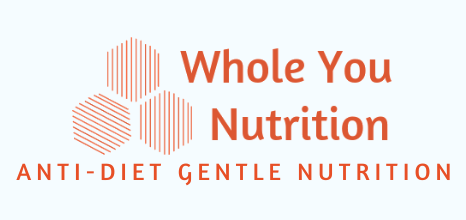4 Reasons to Work with a Licensed Nutritionist
Have you considered working with a nutritionist but aren’t quite sure if it makes sense for you? Read on to learn 4 reasons why you might want to add a licensed nutritionist to your care team.
Why to Work with a Licensed Nutritionist:
1. Personalized Approach
People are different and need different things at different times. Most diets touted on the internet, in magazines, or by influencers have a one-size-fits-all approach to health. This approach can fall anywhere from problematic to down-right dangerous.
Skip the cookie cutter advice with their extensive “eat this, not that” lists and work with someone who can take into account your specific needs. This can include your schedule, your budget, your food likes and dislikes, your current health, and your health and diet history to name a few. Our work together is guided by learning to listen to and trust your body’s cues which are unique to you.
2. Accountability
Most people are already aware that eating more vegetables, moving their body, getting regular sleep, and managing stress are health promoting activities. Have you ever tried to make a change to one of these areas? It can be hard.
Working with a licensed nutritionist means having someone on your team that can help you breakdown big goals into smaller steps, cheer you on, listen to struggles, suggest a change in approach, or challenge thought patterns when necessary. It is having someone on your team who wants to hear about the delicious new recipe you tried, how your morning bowel movements seem a little off, or how relaxing you find it to sing in the shower.
Appointments can be in-person or virtual. Either way you get support between sessions with messaging and document sharing in a secure portal.
3. Required Education and Continuing Education
Being licensed comes with a required set of education and experience standards that must be met. In the state of Minnesota that means an advanced degree in nutrition, 900 hours of supervised experience, and 45 continuing educations credits every 3 years.
The legality of using terms like nutritionist varies from state to state (whereas registered dietitian has a national standard). If you are unsure, there is always google but it is important that you feel comfortable asking any professional you are working with about their training or the meaning of the credentials after their name. For more information check out the post Alphabet Soup.
4. Safe and Smart Supplementation (if needed)
Think of the compounds contained in supplements, like vitamins and minerals, as workers in your body. If you don’t have enough of a particular type of worker, your body can’t finish a project, like making hormones or neurotransmitters, building muscles, or fighting off illness, as planned. Ideally most of these workers would come from the foods you eat or your lifestyle habits but sometimes it isn’t possible. Have you tried to get an extended period of sun exposure on most of your body in January in Minnesota? Please pass the Vitamin D supplement!
Did you know that certain common prescription medications can deplete nutrients from your body? The technical term is drug induced nutrient depletions. For example, birth control pills can deplete certain B vitamins which means that you need to increase your intake either from food or supplements to make up the difference. There can also be negative interactions between drugs and supplements. For example, you should skip the popular herbal supplement St. John’s Wort or the serotonin precursors tryptophan or 5-HTP if you have a prescription SSRI like Zoloft or Prozac.
A licensed nutritionist can help you navigate these interactions and suggest supplements tailored to your specific needs and adjust those recommendations or dosages over time. There is no requirement to take supplements to work with a nutritionist and Whole You Nutrition does not profit from the sale of supplements (instead those savings are passed on to clients!).
The information provided is for educational and informational purposes only. It is not intended to be medical advice or to diagnosis, treat, cure or prevent any disease. This information does not replace a one-on-one relationship with a physician or healthcare professional. Dietary changes and/or the taking of nutritional supplements may have differing effects on individuals.
To learn more about how working with a nutritionist could help you, schedule a free 15-minute call.

